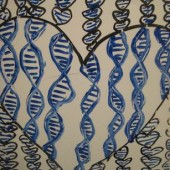
Rick Medrick, one of the Guest Editors for this issue of JSE, puts out the call to “take back” our educational process to its origins, where, as beings of the earth, we experience things first and foremost as a way of finding out the truth and the beauty of the natural world. From those roots, he argues, we are sure to find our way to a sustainable future.
Continue Reading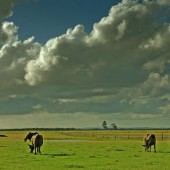
The human capacity for scientific thinking is an innate one that coexists with our ability to intuit, believe, and invent. In crafting engaging narratives that urge our readers or students to think and act rationally on behalf of our imperiled biosphere, writers who are not scientists should take care not to sustain negative stereotypes of science and scientists in their commentary, even if some of our greatest storytellers have done so.
Continue Reading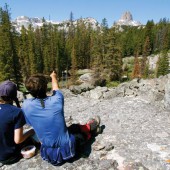
Minimum impact camping is a focus of most wilderness programs, but what example are we setting for our students before we get to the backcountry? In the past eight years NOLS has increased its focus on leading and teaching front-country sustainability by example, in addition to Leave No Trace practices taught in wilderness classrooms. This article explores some of the strategies, challenges, and successes in bringing sustainability to NOLS’ front-country operations.
Continue Reading
Environmental education (EE) strives to strengthen the ecological literacy of individuals and society. Guiding individuals along their own journey toward a deeper ecological literacy should be a central tenet of any EE program, and at least a complementary piece of programs in other closely related fields like experiential and adventure education, sustainability education, ecotourism, the natural sciences, conservation biology, public lands advocacy, wilderness-based therapy, ecopsychology and human rights and social justice. Regardless of their background, expertise, or actual job title, environmental educators should consider themselves key players in guiding individuals along their personal journey towards a deeper ecological literacy.
Continue Reading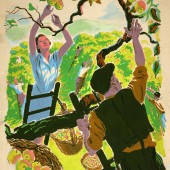
The United States agriculture sector faces a looming labor shortfall. Today’s farm workforce is demographically aging, and as fossil fuel inputs decline the need for human inputs will only increase. The problem is particularly stark for seasonal farm labor, which is poorly compensated, operates on an erratic schedule, uproots one from community, and offers little or no opportunity for advancement. Who will bring in the harvest? In this essay, Brent Ranalli argues for the creation of a voluntary national service program to engage youth in seasonal agricultural work. Such a program would bridge the labor gap with a segment of the workforce that is fit for the task. It would also provide educational opportunities and a stepping stone to careers in farming and allied fields, and restore dignity to an indispensable form of labor.
Continue Reading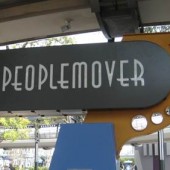
In this inspiring tale, Dan Garvey makes the case for the essential role of experience in showing the truth. He argues that it is easy to use secondary experience, through words, images and other media, to convince people of almost anything. But only through direct experience do we arrive at the ability to distinguish real truths.
Continue Reading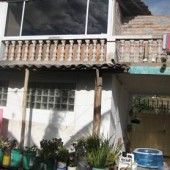
Rick Medrick cogently makes the argument that sustainability education IS experiential education!
Continue Reading
This article explores how to create a sustainable adventure movement and increase the use of Outdoor Adventure Education as an innovative educational tool in schools, communities and businesses. Taking a whole system approach and applying leading social movement and diffusion theories, the Adventure Movement Project seeks to develop a framework for integrating Outdoor Adventure Education into whole communities to inspire servant leadership, achieve sustainability, and drive innovation. Original research presented shares why Outdoor Adventure Education matters and how a socially just and sustainable planet can thrive with Outdoor Adventure Education acting as a highly effective catalyst to drive social, economic, educational, and environmental change.
Continue Reading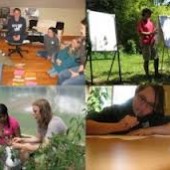
To live up to UNESCO’s definition of a sustainable development education that empowers youth with the knowledge, attitudes, motivations, commitments, and skills to solve and prevent the world’s total environmental problems, youth must be able to find meaning in the curriculum based in their own experiences and expanded through shared group experiences. An environmental-based experiential curriculum with a positive development focus can help youth reclaim their learning process and reconnect with their communities. However, without critical analysis, students, especially marginalized students, cannot develop the tools and competencies to truly understand their environment and their place within it. Linking environmental and experiential education with critical theory provides students the opportunity to develop their leadership and gain the social and cultural literacy skills needed to come in from the margins.
Continue Reading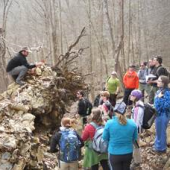
In this article I articulate what it means to understand curriculum as bioregional text. I utilize a theoretical mode of inquiry to explicate the values of bioregional education while integrating the discussion into the reconceptualized field of Curriculum Studies. The discussion addresses the value of direct experience, in our bioregion, and explains the significant contribution that can be drawn from developing a clearer understanding of our bioregional autobiography.
Continue Reading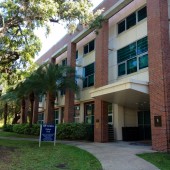
As sustainable construction continues to increase its market share in the commercial construction realm there is continued discussion regarding providing adequate exposure to sustainable practices in the undergraduate curriculum. Sustainable construction, specifically United States Green Building Council Leadership in Energy and Engineering, places an emphasis on design integration, professional and industry education, and market transformation – both in products and installation techniques. The question at hand is how to prepare construction and engineering students for what is quickly becoming the norm for construction in the United States. Previous research has discussed integration of curriculum and has found there are no existing standards in place. This study finds that when sustainability is viewed as integral to high performance design and delivery that course development is more a function of integration than revision. This paper reviews the progress made since 1998 to present in undergraduate integrated and supplemented education courses in a prominent four year construction program. The question of accreditation requirements and initial career offerings are also discussed. Integrating sustainability into the curriculum is perceived to enhance the students’ learning and provide a superior experience.
Continue Reading
Jack Turner (2005) once wrote “we treat the natural world according to our experience of it.” How are our students “experiencing sustainability” in U.S. colleges and universities? With the rise in popularity of education for sustainability initiatives in both K-12 and higher education, experiential education has been championed as a key pedagogical approach moving forward. Experiential curriculum projects come in many different forms. From outdoor education and service learning to so-called “hands-on” applied work on campus projects and field science research, students are increasingly “learning by doing.” Yet far from just another methodology to be used in the classroom, the rise of experiential approaches indicates deeper tectonic shifts in higher education. As students and faculty engage in this form of learning, questions are raised as to the historic divide between theory and practice, the separation between so-called “town” and “gown” cultures, the curriculum and the co-curriculum, and what forms of knowledge and skills are of the most worth to a 21st century graduate. This analysis first briefly surveys the theoretical history of experiential education before proceeding to consider two specific curriculum projects at the intersections between sustainability and experiential education—place-based learning and project-based learning. The analysis concludes with a discussion of the possibilities and limitations of current forms of experiential education in higher education and a consideration of future trends and developments.
Continue Reading
This report describes a unique technique for presenting an introduction to sustainability science course that is both required for sustainability science majors at a large Mid-Atlantic state university and a general education non-laboratory science course. The World Scientists’ Warning to Humanity, released by the Union of Concerned Scientists in the late 1990s, serves and an indictment of humanity. The course mimics a trial as it proceeds from the indictment through an arraignment, pre-trial, trial, verdict, and sentencing with students acting both as the accused and the jury.
Continue Reading
The field study (or short-term study abroad) creates a successful hybrid of study abroad and field research. These short-term educational adventures (edu-ventures) give environmental or sustainability students opportunities to gain practical knowledge while traveling domestically or overseas. In addition, it presents the opportunity for both faculty and students to extend the traditional Boyer model of scholarship, a reputable professoriate model, by developing continuity. The field study fulfills the four pedagogical goals of the Boyer model: creating research opportunities (discovery); breaking down the silos of traditional academic departments (integration); acting as consultants on-site (application); and educating students beyond the faculty members’ expertise (teaching). In addition, these field studies fulfill a fifth goal: building relationships and transgressing time (continuity). The development of this Boyer Plus model from a field-study experience serves as a tremendous tool for colleges, universities and professors to build the opportunities and necessary pedagogical skills for both traditional and non-traditional students.
Continue Reading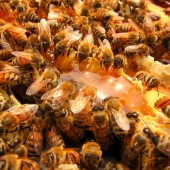
The Ashland Apiary Project is a multi-pronged, multi-aged learning design that uses beekeeping as a thematic avenue for hands-on experiential learning and the cultivation of land stewardship. The project is a student-led, collaborative effort by Southern Oregon University to establish an on-campus apiary that serves as a model of place-based and community-based education for a wide audience of students in an elementary, secondary, and collegiate setting. Through the Ashland Apiary Project, the pedagogic approach of “apiary-based learning” is considered in the field of sustainability education.
Continue Reading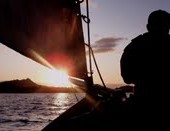
What began more than thirty years ago as a personal journey to explore my Scandinavian roots has evolved to a deep understanding of my mythopoetic connections with nature that has transformed my teaching. Through the process of exploring, learning, teaching and living in Norway, I have developed a field course for upper division students at Prescott College. From learning to sail traditional wooden boats to assisting with a harvest at a thousand year old farm, students discover the meaning of sustainability thr
ough direct experience, and how people have survived in a landscape that has directly influenced the Scandinavian cultural movements of Deep Ecology, and Friluftsliv or “Free Air Life”. The sharing of cultural wisdom handed down through generations of how to live sustainably with a landscape is rapidly disappearing and is key to our survival.
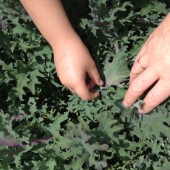
In order to address the ecological and social problems of sustainability in our modern times, citizens need to be empowered with an understanding of science, technology, engineering, and math (STEM) concepts and practices. Furthermore, STEM must be democratized and taught in life-giving and life-sustaining ways that include all students instead of the small fraction of “high achievers” and limited to the “potential” scientists, engineers, and mathematicians. At present, K-12 students and their teachers rarely have the opportunity to learn beyond their concrete school walls and to reconnect with nature, exacerbating their disconnection of STEM from real life and hence sustainability. We believe that engagement with school grounds and gardens and the very soils on which learning takes place can provide simple yet authentic day-to-day educational experiences that can bring mindfulness of lessons related to the cycles of life and death and to the interplay of justice and power in our communities. To transform teaching and learning in the classroom, teachers need different learning experiences that provide them with the time, space, and appropriate supports to translate their learning into teaching practice making education relevant to life. School gardens provide a rich context for learning both for teachers and students by embracing experiential, integrated, and collaborative learning. This study highlights an example of a summer program that involved teachers in hands-on education related to STEM in the learning gardens at four low-income schools in southeast Portland representing the growing ethnic, linguistic, and cultural diversity of the districts in the metropolitan area. Teacher voices capture the essence of learning STEM in the learning gardens, and also address issues of social and environmental justice.
Continue Reading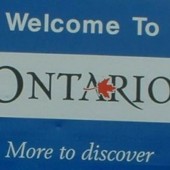
Environmental sustainability and justice and experiential education are present-day “buzzwords.” This case study of one secondary school Environmental Studies Program in Ontario, Canada problematizes the assumption that environmental knowledge(s), one form of experiential education, automatically leads to students acting pro-environmentally, querying: 1) how does environmental education impact secondary school students’ pro-environmental behaviours?; 2) to what extent does environmental knowledge inform environmental actions? Four primary themes emerged in one case study: a) strong sense of community; b) the evolving mission/vision in the program; c) the teacher’s evolving pedagogical praxis; and d) an increase in activist leanings in students. The role of the teacher on student learning, a discussion of emancipatory environmental actions, and educational policy implications are discussed.
Continue Reading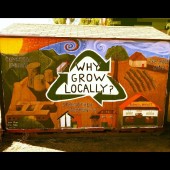
This paper will focus on a qualitative research project that occurred in the fall of 2011 at Chandler Gilbert Community College, which set out to better understand the learning process of experiential education by observing the comments and actions of students interacting in nature-based learning. The research study is based on the premise that students who develop a moral awareness of nature will better understand the core conceptual components of environmental sustainability. The main objective of this research project was to assess the transformational learning of students enrolled in PHI-216 Environmental Ethics courses who engaged in experiential learning to better understand environmental sustainability.
Continue Reading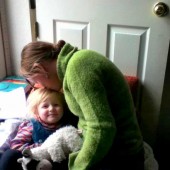
Story-to-Song (STS) is a collaborative musical process in which a participant and a musical guide work together to create a song from the participant’s spoken story. Within this process can be found stages that progressively transform a written text into a song with a melody, verses, chorus, groove, and chord progression. The authors, who have worked as both musical guides and participants, explore this method in a scholarly realm in order to deconstruct the stages for composing a song. Through a creative deconstruction of this method, they have gained insight into how to create a sustainable, collaborative partnership.
Continue Reading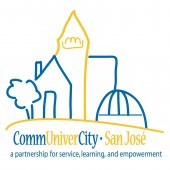
Experiential learning, and more specifically, service learning (SL) can serve as an ideal mechanism to support sustainability education. In particular, because of its emphasis on collaboration between students, faculty, and the community partner(s) and on social change and civic engagement, SL provides an excellent vehicle to address issues related to social justice. In this article, we document a unique SL partnership at San José State University—CommUniverCity. CommUniverCity’s primary mission is to build social capital and empower residents in an underserved community near the university. Each year, students, faculty and residents invest more than 21,000 hours in service to the community. Because of its unique mission, sustainability-related projects lie at the heart of what CommUniverCity does. We analyze student surveys from more than 30 classes engaged in SL projects during 2012 across a wide range of disciplines. All projects address at least one, and often multiple “Es” of sustainability. Our findings indicate that students find value in the SL experience, not only in terms of better understanding of the course subject matter, but also in terms of their understanding of “community” and the larger issue of social justice and equity.
Continue Reading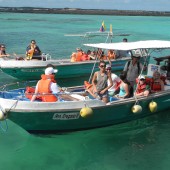
Joe Treaster showcases an intense experiential learning course using audio recordings to create original student work in the Galapagos Islands. he makes the strong case for the transformative nature of study-abroad experiences when students are challenged to be directly involved in the communities and locations where they go to study.
Continue Reading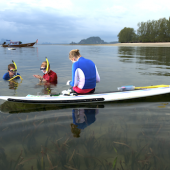
Understanding how we live (culture) and its impact on where we live (ecology) is one of the key issues facing sustainability and sustainability education. The International Sustainable Development Studies has developed a study abroad program for American college and university students in Thailand, “People, Ecology and Development” to address these issues through experiential studies of sustainability. Courses each semester focus on understanding the broader challenges of sustainable development through experiential studies of specific landscapes and cultures in the villages, mountains, coasts and islands throughout Thailand. This paper examines the key components of ISDSI’s programs, and provides a framework for understanding how these principles can be used to teach about sustainability within the broader context of issues of social justice and global learning more generally. Key components of the ISDSI approach include: community based learning — working with local communities to design courses that reflect community needs, knowledge and struggles; place-based learning — examining both the culture and ecology of specific locations, watersheds, bioregions, island archipelagos, etc.; experiential learning — learning through direct examination of and participation in the cultural practices (lifeways, norms, etc.) and study of ecological components (forests, coral reefs, etc.); and expedition based — learning during focused expeditions through the landscapes being studied, usually human powered (backpacking through remote mountain forests, sea kayaking between islands, etc.).
Continue Reading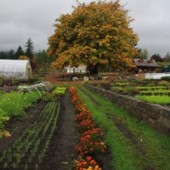
Field studies play an important role in curriculum at many levels. Within the Sustainable Leisure Management graduate program at Vancouver Island University (VIU), field studies play a critical role in allowing students to better understand the complexities of sustainability and innovation at the local/regional level. One particular course utilizes case studies as a research method and experiential education as a pedagogical philosophy, and in the 2012 edition highlighted by this article, the course examined sustainability and innovation on the Southern Gulf Islands of British Columbia, Canada.
Continue Reading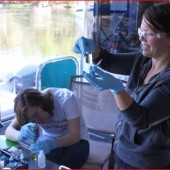
This paper presents a case study of an experiential learning project, an analysis of its transformative learning effects, and a description of the aspects most influential on transformative learning. The project is an eight-day houseboat excursion with students at the University of North Florida. Student work products were evaluated for evidence for transformative learning. The most powerful factors causing transformative learning were the experiential aspect of studying in the field, projects done strictly within a student’s major discipline, and extra-disciplinary projects done intentionally outside a student’s major discipline.
Continue Reading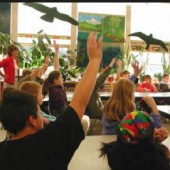
Even less well known than how non-formal education is woven into formal education is how classroom teachers and non-formal educators work together to plan and implement these kinds of partnerships in the classroom. This study sought to explore how to intentionally and effectively structure the partnership between a formal and non-formal educator. The results of the study indicated that formal and non-formal educators can support each other’s goals through systematic collaboration in a robust and dynamic partnership that necessitates working together both prior to and during the implementation of programs to define goals and iteratively gauge roles of each educator in the process. Suggestions are made for how both educators can be made aware of the commitment involved in an explicit collaboration, including materials needed, expected levels of communication, individual roles, assessment aims, and time needed for effective outcomes.
Continue Reading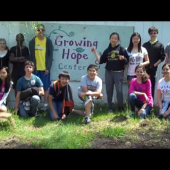
This article presents a case study of a middle school project based on the experience of two teachers and an administrator. The project gives 8th grade students an opportunity to make a difference in the world through a Sustainability Action Project. In this article you will read the rationale behind this project. You will get an overview of and a timeline for its implementation over the course of a complete academic year. We will provide you with some examples of projects as well as refer you to our school webpage where you can view these projects in more detail. Finally, we have included appendices of several of the materials we provide to our students. We hope that you will clearly see what sets this learning experience apart from other sustainability projects, and that you will be able to adopt a similar project in your school.
Continue Reading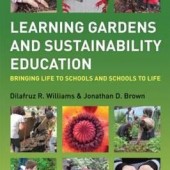
Tricia Francis-Morgan elegantly lays out all the power in Williams and Brown’s book. She gives just enough of a taste of how transformational learning gardens can be, in so many different ways, from the social to the physical, to the biological, that we are left with a desire to quickly get the book. At the same time, Francis-Morgan’s perspective on this pioneering book carries extra weight given her own experiences using learning gardens in the Caribbean.
Continue Reading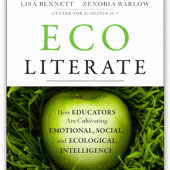
Daniel Goleman, Lisa Bennett, and Zenobia Barlow, in their book Ecoliterate: How Educators are Cultivating Emotional, Social, and Ecological Intelligence, share the stories of a new generation of educators and activists that are displaying the five practices of socially and emotionally engaged ecoliteracy: developing empathy for all forms of life; embracing sustainability as a community practice; making the invisible visible; anticipating unintended consequences; and understanding how nature sustains life. This book provides useful examples and serves as a guide for educators interested in developing a sustainability-focused learning environment for their students through the framework of ecoliteracy. The purpose of the following review is to first present the purpose, argument, and organization of Ecoliterate, and to then evaluate the claims and implications it presents for practitioners of sustainability education.
Continue Reading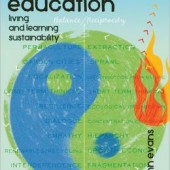
Mark Seis review of Tina Evans book helps us see the power of Evans’ approach to using critical social theory as a vehicle for dissecting out how higher education might really work towards true sustainability. Evans’ book takes on a giant task and delivers a strong call for deeply analyzing the capitalist and materialist forces that dominate higher education so that a truly transformative sustainable education process can be constructed.
Continue Reading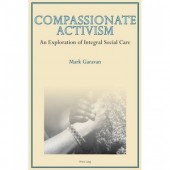
In this informative review, Tina Evans makes the succinct argument that Garavan’s work, which never directly addresses sustainability, nonetheless brings home the central and crucial role of integral social care to a just and sustainable world. Evans’ review provides a great overview of the book and serves as an easy entry-point into this important work.
Continue Reading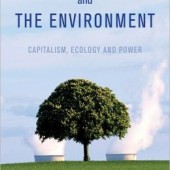
Tina Evans explores the multi-faceted significance of this book about the many different ways we must consider the role of power in the process of globalization. Her review gives us a taste of how broadly Newell defines governance and sees the role of power among state and non-state institutions at many different levels. The relationships among business, governments, trade, finance, capital and the environment all enter into the overview of this important work provided by Evans.
Continue Reading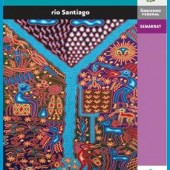
Daily news relentlessly confirms that we have not been able to find a balance between the environment, the economy, society and culture. The trend of worldwide development is increasingly far from sustainability and it seems that we cannot perceive evident and subtle interconnections required to understand the whole picture. Thus, issues such as the loss of biological diversity, weakening of cultural diversity and poverty, have usually been dealt with separately. Nevertheless, they are in fact closely connected and relevant to sustainable development. A holistic and more comprehensive approach for action at all levels is required to attain sustainability, as pointed out by the United Nations Decade of Education for Sustainable Development (2005-2014). Water can be seen as one common thread to link those issues. On the other hand, Education must be at the core of sustainable development for either to be successful. Water education is therefore a core element to achieve sustainability. Watersheds are a natural starting point for a holistic, comprehensive approach, as they can be described as a physical-biological unit, as well as a socio-economic-political unit, which can be used for planning and management of natural resources. A watershed perspective facilitates education to be locally relevant and culturally appropriate. Herein we will discuss some examples of watershed-based education in Latin America, addressed to provide a better understanding of local environmental, social, cultural and economic topics and issues from early childhood.
Continue Reading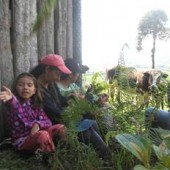
PDF: Kassam&AveryJSESpring2013 The Oikos of Rural Children[1]: A Lesson for the Adults in Experiential Education Karim-Aly S. Kassam, Department of Natural Resources & American Indian Program, College of Agriculture and Life Sciences, Cornell UniversityLeanne M. Avery, Department of Elementary Education and Reading, State University of New York College at Oneonta […]
Continue Reading
The dominance of neoliberalism over the past 35 years has transformed not only how global cities develop but also has shaped new forms of activism that contest this very development, including both economic and environmental justice organizing. Many of these social movement groups have developed similar models of organizing (community mobilization, policy advocacy and—when necessary—litigation) that target the skewed distribution of urban development and land uses. As in all social movements, they also “frame” their work to attract support and blunt opposition, a process that is part of the educative function of organizing. Recently, as these economic/environmental justice organizations have grown and matured, many are combining their frames, seeing the relevance of both frames to their communities. This process of framing and reframing through active organizing is one of learning in the struggle.
Continue Reading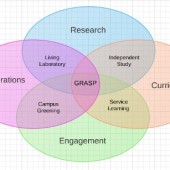
The current paper introduces and presents a preliminary pilot study of the Guided Research Applied Sustainability Project (GRASP) model for sustainability education. GRASP integrates curriculum, research, operations and engagement at the university level to create specialized projects that both engage students with real world issues and provide usable outputs for campus and/or community partners. Drawn from theory and practice in Education for Sustainable Development (ESD) as well as experiential education, the GRASP model includes five primary elements, which are the project topic (substantive issue being studied), groups (students working together), mentors (conduit between the instructional staff and enrolled students), assignment (pedagogical deliverable students submit for grade), and procedure (process of topic selection and project completion). GRASP was designed to enable implementation in both small and large courses at the undergraduate and/or graduate level and was tested in a large (200+ student) undergraduate Sustainability course. Projects included a campus sustainability audit and mixed methods analysis of documentary film campaigns. Survey data collected from students and mentors determined that the GRASP model is effective in providing students with a positive and engaging learning experience. Outcomes identified relate to attitudes and values as well as knowledge and skill attainment (e.g. teamwork, applied sustainability research). Suggestions include additional instruction on research methodology and greater clarification of project guidelines and mentor roles. The results of our pilot study reaffirm the potential impact of an experiential approach to sustainability education that incorporates multiple stakeholders from within the university campus and is scalable to large classes. GRASP is recommended as a model with which to meet these goals.
Continue Reading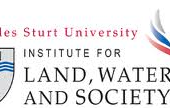
PDF: Rafferty and Laird, Spring 2013 Abstract: This paper explores the observations and perceptions of school children as they engage with nature through place based environmental experiences. The paper reports on two projects, one based in the USA and the other in Australia, designed to promote understanding of sustainability through outdoor […]
Continue Reading